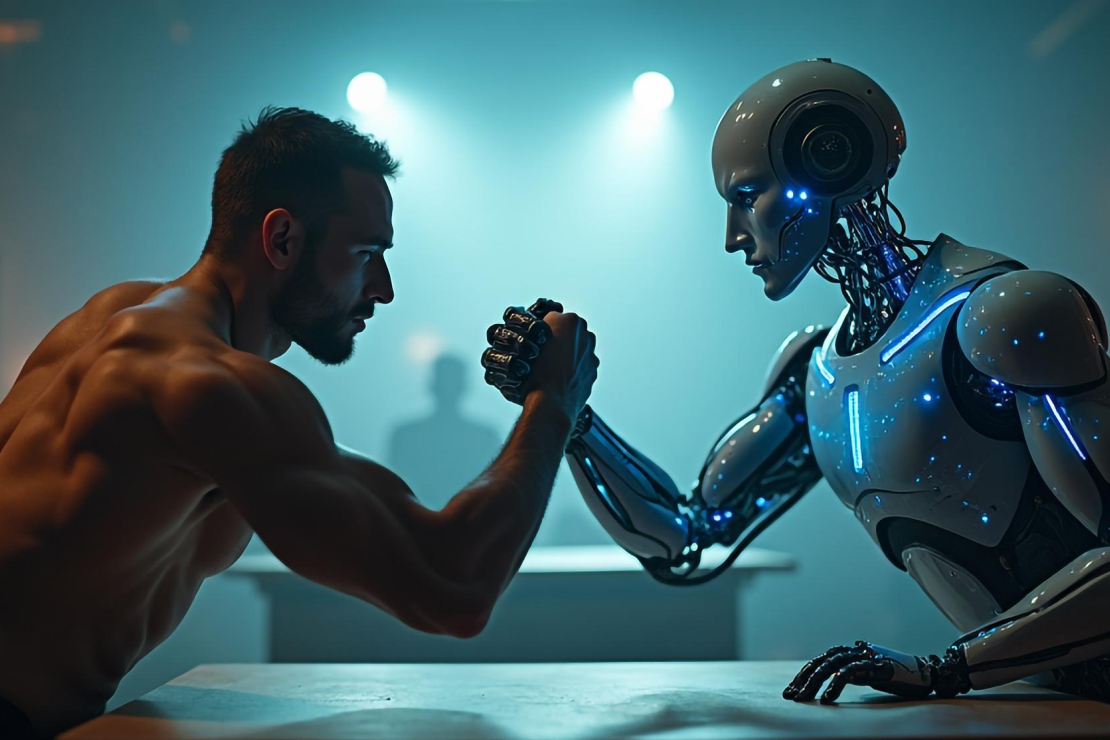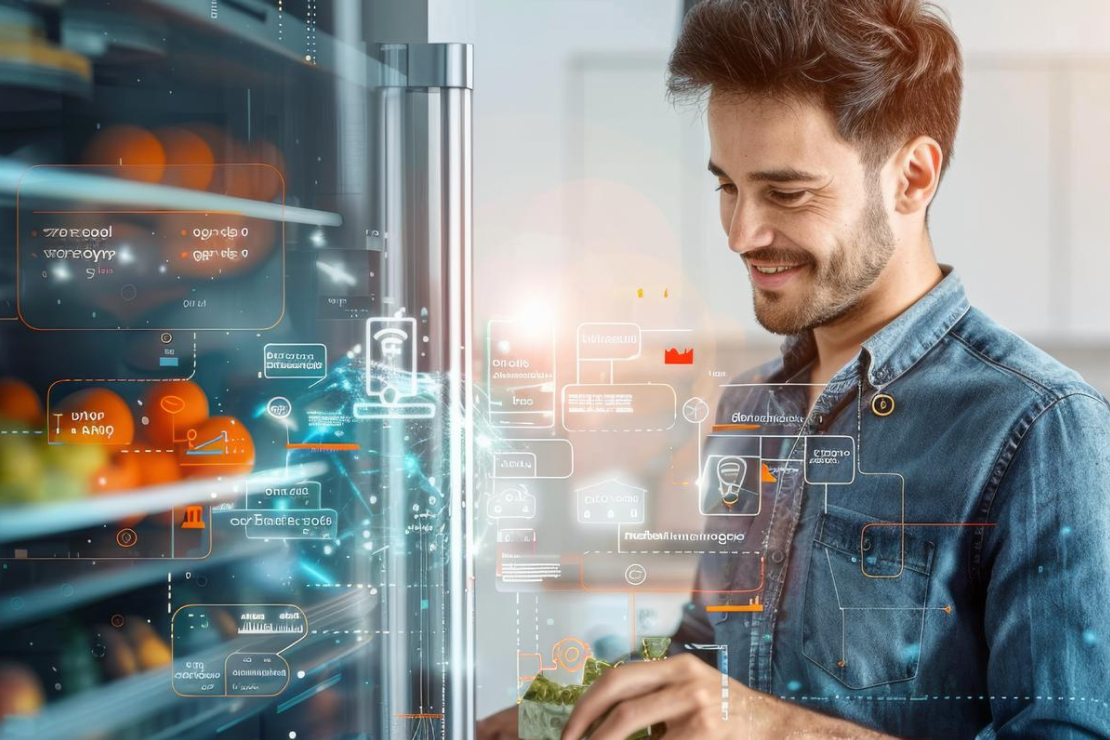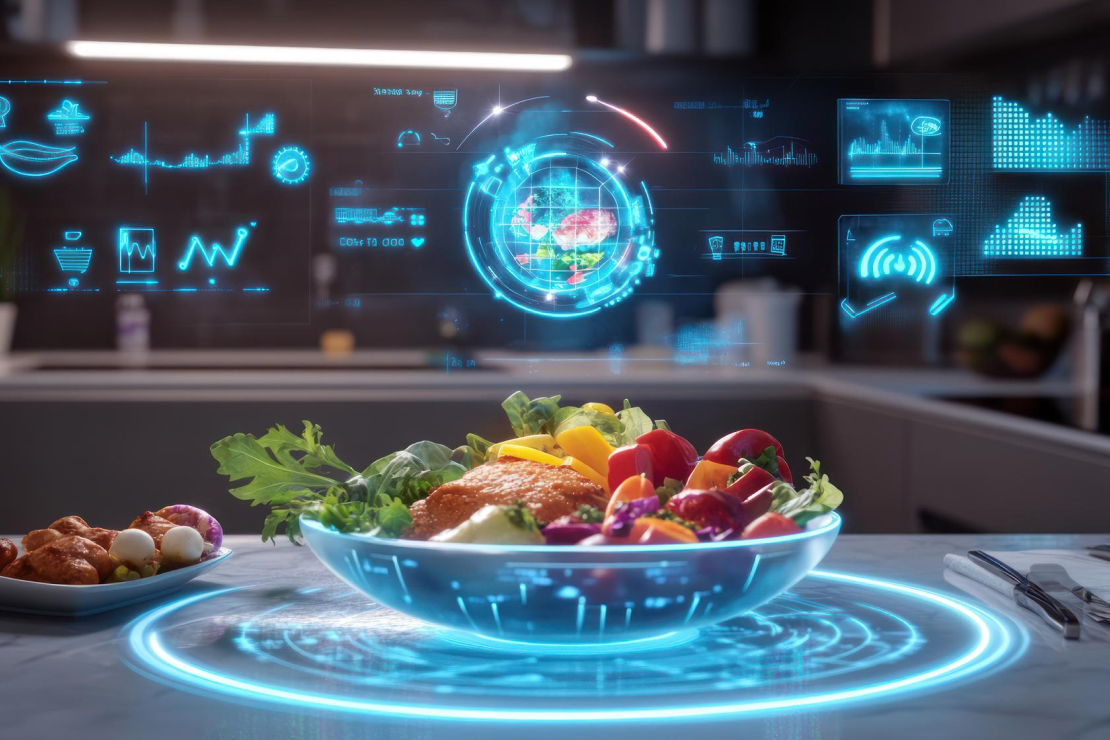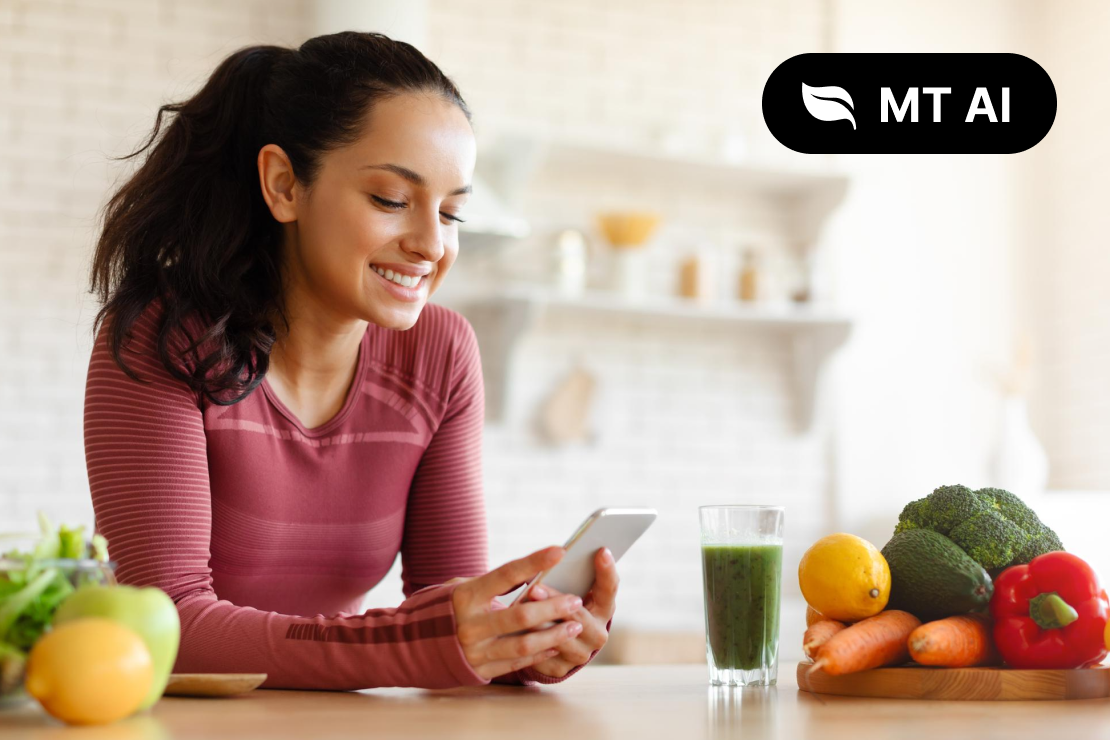AI vs Human Trainers: Who’s Better at Planning a Fat-Loss Meal Plan?
Dive into the ultimate showdown: AI vs. human trainers for fat loss meal planning. Discover the strengths and weaknesses of each, and find out which approach is best for your weight loss journey.

Table of Content
The Ultimate Showdown: AI vs. Human for Fat Loss Meal Planning
In the ever-evolving landscape of health and fitness, the debate between artificial intelligence and human expertise is heating up. When it comes to planning a personalized fat-loss meal plan, both AI and human trainers offer distinct advantages. But who truly comes out on top? This article delves into the strengths and weaknesses of each, helping you decide which approach is best suited for your unique weight loss journey.
The Human Touch: Strengths of Human Trainers
Human trainers bring invaluable qualities to the table that AI, despite its advancements, cannot fully replicate. Their approach is often holistic, considering aspects beyond mere data points.
1. Empathy and Psychological Support:
- Understanding Emotional Eating: Human trainers can identify and address the complex psychological triggers behind emotional eating, offering coping strategies and empathetic support that AI cannot.
- Motivation and Accountability: The personal connection and human interaction provide a powerful source of motivation and accountability, crucial for long-term adherence.
- Building Rapport: A trainer can build trust and rapport, making clients feel understood and supported through their struggles and triumphs.
2. Adaptability to Complex Life Factors:
- Non-Quantifiable Variables: Life is messy. Human trainers can adapt plans based on stress levels, sleep quality, social events, cultural nuances, and personal preferences that are difficult for AI to fully quantify.
- Real-time Problem Solving: They can quickly pivot and offer creative solutions when unexpected challenges arise, such as sudden travel or illness.
3. Personalized Coaching Beyond Data:
- Intuitive Adjustments: Experienced trainers often rely on intuition and years of experience to make subtle adjustments to a plan, recognizing nuances in client behavior and physiology.
- Education and Empowerment: They can educate clients on the 'why' behind recommendations, fostering a deeper understanding and empowering them to make informed choices independently.
The AI Advantage: Strengths of AI Trainers
Artificial intelligence is rapidly transforming the field of nutrition, offering capabilities that surpass human capacity in several key areas, particularly when it comes to data processing and precision.
1. Data Processing Power:
- Vast Data Analysis: AI can analyze millions of data points (food databases, scientific studies, user logs) in seconds, identifying patterns and correlations that would take humans years.
- Unbiased Recommendations: AI provides recommendations based purely on data, free from human biases, personal preferences, or emotional influence.
2. Precision and Accuracy:
- Calorie/Macro Tracking: AI-powered apps like Macro Tracking AI use advanced computer vision to accurately identify foods and estimate portion sizes, leading to highly precise calorie and macro tracking.
- Micronutrient Analysis: AI can track dozens of micronutrients, ensuring comprehensive nutritional completeness in meal plans, which is often overlooked in manual tracking.
3. Real-time Adaptation:
- Dynamic Adjustments: AI can continuously adjust meal plans based on real-time data from wearables (activity levels, sleep quality, heart rate), ensuring the plan evolves with your body's changing needs.
- Predictive Analytics: AI can forecast potential plateaus or nutritional deficiencies, allowing for proactive adjustments to prevent setbacks.
4. Accessibility and Cost-Effectiveness:
- 24/7 Availability: AI is always on, providing instant feedback and support whenever needed, without scheduling conflicts.
- Lower Cost: AI-powered nutrition apps are significantly more affordable than human trainers, making personalized meal planning accessible to a wider audience.
Head-to-Head Comparison: AI vs. Human Trainers
| Feature | Human Trainer | AI Trainer |
|---|---|---|
| Personalization | Deep, empathetic understanding; qualitative adaptation. | Data-driven, hyper-precise, real-time quantitative adaptation. |
| Adaptability | Excellent for complex, non-quantifiable life events. | Superior for rapid, data-driven adjustments to physiological changes. |
| Cost | High (hourly/monthly fees). | Low to free (subscription-based apps). |
| Emotional Support | Strong (empathy, motivation, accountability). | Limited (data-driven nudges, but no true empathy). |
| Data Analysis | Limited by human capacity; relies on self-reported data. | Vast, unbiased, real-time analysis of complex datasets. |
| Accessibility | Limited by trainer availability and location. | 24/7, global access from any device. |
Limitations of Each Approach
Human Trainer Limitations:
- Cost: High fees can make personalized coaching inaccessible for many.
- Scalability: One-on-one coaching is not scalable to large populations.
- Bias: Human trainers can inadvertently introduce personal biases or outdated information.
- Data Processing: Limited ability to process vast amounts of real-time data from wearables and food logs.
AI Trainer Limitations:
- Lack of Empathy: Cannot provide genuine emotional support or understand complex human emotions.
- Contextual Blindness: Struggles with nuanced social situations, cultural traditions, or sudden, non-quantifiable life changes.
- Data Dependency: Relies heavily on accurate user input; poor data leads to poor recommendations.
- Ethical Concerns: Potential for data privacy issues and algorithmic bias if not carefully managed.
The Hybrid Approach: The Best of Both Worlds
The most effective strategy for fat loss meal planning often lies in combining the strengths of both AI and human trainers. AI can handle the data-intensive, repetitive tasks, freeing up human trainers to focus on the psychological, emotional, and highly nuanced aspects of coaching.
How AI Can Augment Human Trainers:
- Automated Tracking: AI handles precise calorie and macro logging, saving time for both trainer and client.
- Pattern Identification: AI can quickly identify eating patterns, craving triggers, and metabolic responses, providing valuable insights to the human trainer.
- Personalized Recommendations: AI can generate initial meal plan drafts, which the human trainer can then review, refine, and adapt based on their qualitative understanding of the client.
How Human Trainers Can Leverage AI Tools:
- Focus on Behavioral Coaching: With AI handling data, trainers can dedicate more time to addressing emotional eating, stress management, and building sustainable habits.
- Enhanced Client Understanding: AI-generated reports provide trainers with a deeper, data-driven understanding of their clients' physiology and adherence.
- Increased Efficiency: Trainers can manage more clients effectively by automating routine tasks, making their services more accessible.
Conclusion: A Collaborative Future
Ultimately, the question isn't whether AI or human trainers are 'better' at planning fat-loss meal plans. It's about how they can collaborate to provide the most comprehensive, effective, and sustainable support. For those seeking a highly personalized and data-driven approach at an affordable cost, AI-powered tools like Macro Tracking AI are an excellent starting point.
For individuals with complex needs, deep-seated emotional eating patterns, or a strong preference for human connection, a human trainer remains invaluable. The future of fat loss meal planning lies in a synergistic relationship, where AI empowers individuals with data and insights, and human trainers provide the empathy, motivation, and nuanced guidance that only another human can offer.
"The most effective fat-loss journey is one that leverages the precision and efficiency of AI with the empathy and adaptability of human coaching."
Frequently Asked Questions
Can AI create a meal plan for me if I have allergies?
Yes, advanced AI nutrition apps can take into account various allergies and dietary restrictions (e.g., gluten-free, dairy-free, nut allergies) when generating meal plans. You input your restrictions during setup, and the AI will filter out non-compliant foods and suggest suitable alternatives.
How does AI handle emotional eating?
AI can help identify patterns of emotional eating by correlating food intake with logged moods, stress levels, and activity. While AI cannot provide emotional support, it can offer data-driven insights and suggest non-food coping mechanisms or mindful eating exercises. For severe cases, human professional help is recommended.
Is AI meal planning suitable for athletes?
Yes, AI meal planning can be highly beneficial for athletes due to its precision in macro and micronutrient tracking, and its ability to adapt to changing training volumes and energy demands. It can optimize nutrient timing for performance and recovery, though elite athletes may still benefit from a human coach's nuanced experience.
Start Your Health Journey Today
Download Macro Tracking AI and take control of your nutrition with the power of artificial intelligence.
Download on App Store

